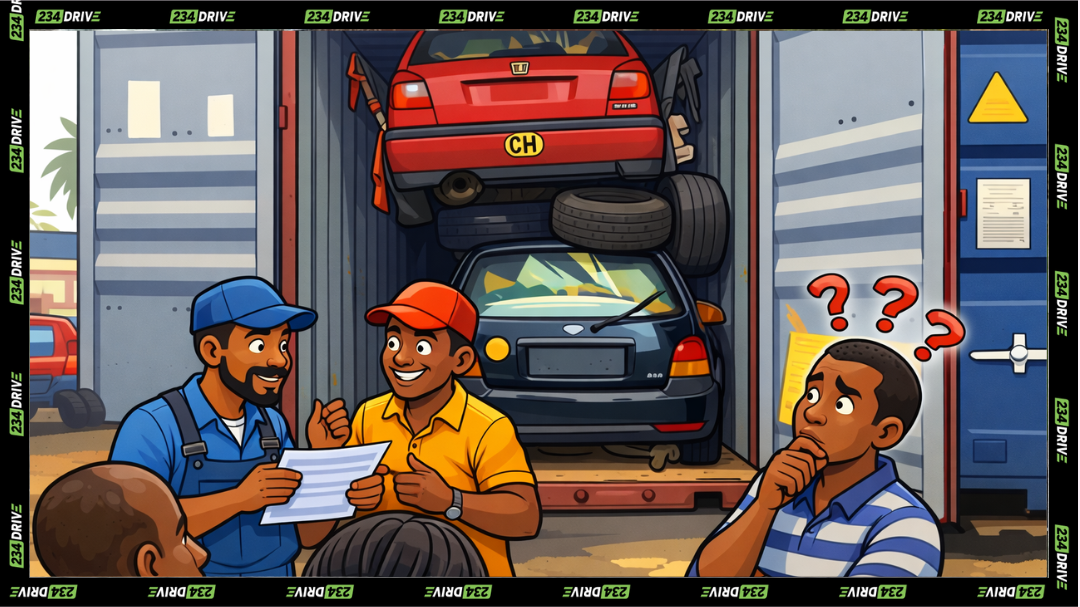Traffic rules differ from country to country, but some are universally accepted as essential for keeping roads safe and organised. Whether you are behind the wheel daily or only once in a while, these rules help prevent crashes, safeguard lives, and ensure smoother journeys. Ignoring them—like running red lights, speeding, or using a phone while driving—can lead to serious, sometimes fatal, consequences. This guide outlines ten key traffic rules, explains why each is important, and shows how they apply both globally and within Nigeria’s road safety framework.

1. Obey Traffic Signals and Signs
Traffic lights and road signs exist to regulate movement and minimise chaos. A red light means stop completely; green means go; yellow signals caution. Yield signs require you to slow down and give way to other vehicles or pedestrians. Speed limit signs are set for safety based on the road type and conditions. Ignoring these not only risks accidents but can also lead to fines and penalties.
In Nigeria, agencies like LASTMA and FRSC actively enforce these rules. Some busy intersections now use cameras to catch violators, ensuring penalties are unavoidable. Globally, this is a non-negotiable standard for drivers.
2. Always Wear a Seat Belt
Seat belts reduce the risk of death in a collision by nearly 50%. They are effective because they prevent occupants from being thrown forward or out of the vehicle. This rule applies to all passengers—front and back.
In Nigeria, FRSC and local traffic officers carry out regular seat belt checks. Fines are issued on the spot for non-compliance. It’s a simple habit that drastically increases your chances of survival in an accident.
3. Don’t Drive Under the Influence
Driving under the influence of alcohol, drugs, or intoxicating medication reduces coordination, slows reaction time, and impairs judgment. Even small amounts can affect your ability to drive safely.
In Nigeria, FRSC checkpoints test for impaired drivers, especially on weekends and during festive seasons. Penalties range from fines to imprisonment. The safest choice: if you’ve been drinking or medicated, don’t drive.
4. Stick to Speed Limits
Speed limits are calculated for safety, considering the road type, traffic volume, and pedestrian activity. Residential areas have lower limits to protect pedestrians, while expressways allow higher speeds.
In Nigeria, overspeeding is a leading cause of fatal crashes, especially on highways like Lagos–Ibadan. Staying within limits improves control, increases reaction time, and reduces the severity of any collision.
5. Yield to Pedestrians
Pedestrian crossings—marked or unmarked—are meant to protect those on foot. Drivers must slow down and give way when pedestrians are crossing.
In Nigeria, pedestrian safety is often compromised by drivers ignoring crossings and pedestrians jaywalking. Nevertheless, drivers bear the legal responsibility to yield. A moment’s patience can prevent a tragedy.
6. Use Turn Signals
Turn signals are essential for communicating your next move. Signalling before changing lanes or turning allows others to anticipate your actions.
In Nigeria, accidents often occur because drivers fail to indicate, particularly among commercial buses that stop or swerve without warning. Proper signalling keeps traffic orderly and prevents collisions
7. Stop for School Buses
In many countries, vehicles must stop when a school bus displays flashing red lights or extends a stop sign. This ensures children can board or alight safely.
In Nigeria, this rule is not yet strictly enforced, but awareness is growing. Slowing down in school zones or near buses is essential to protecting young lives.
8. Avoid Using Phones While Driving
Using a mobile phone while driving is one of the most dangerous distractions. Texting is especially hazardous as it diverts your eyes, hands, and attention.
In Nigeria, offenders risk heavy fines, impoundment, or licence suspension. The safest practice is to pull over before using your phone.
9. Drive on the Correct Side
The side of the road you drive on is dictated by your country’s traffic laws—right in Nigeria and the US, left in the UK, Japan, and India.
Foreign drivers in Nigeria should pay special attention to signage and lane markings to avoid dangerous mistakes like head-on collisions.
10. Give Way to Emergency Vehicles
Ambulances, fire trucks, and police vehicles with sirens and flashing lights must be given priority. Pull over safely and promptly to let them pass.
In Nigeria, heavy traffic often makes this difficult, but failing to make way can delay critical services and cost lives. Stay alert and use your mirrors frequently.
Bigger Picture of Road Safety
Think of these rules as the shared language of the road—a set of commitments every driver makes to protect themselves and others. Sticking to them lowers accident risks, prevents avoidable injuries, and keeps traffic flowing in a way everyone can anticipate. In a place like Nigeria, where congestion and unsafe driving habits are constant challenges, steady compliance can transform daily road use into something safer and more predictable. They’re not only about avoiding tickets—they safeguard you legally, financially, and ethically, helping ensure every journey begins and ends without incident.
Conclusion
These ten rules form the backbone of road safety everywhere. They protect drivers, passengers, and pedestrians, and ignoring them endangers everyone. In Nigeria, as elsewhere, enforcement is increasing, but safety ultimately depends on each driver’s choices. Which of these rules do you think drivers break most often where you live?










